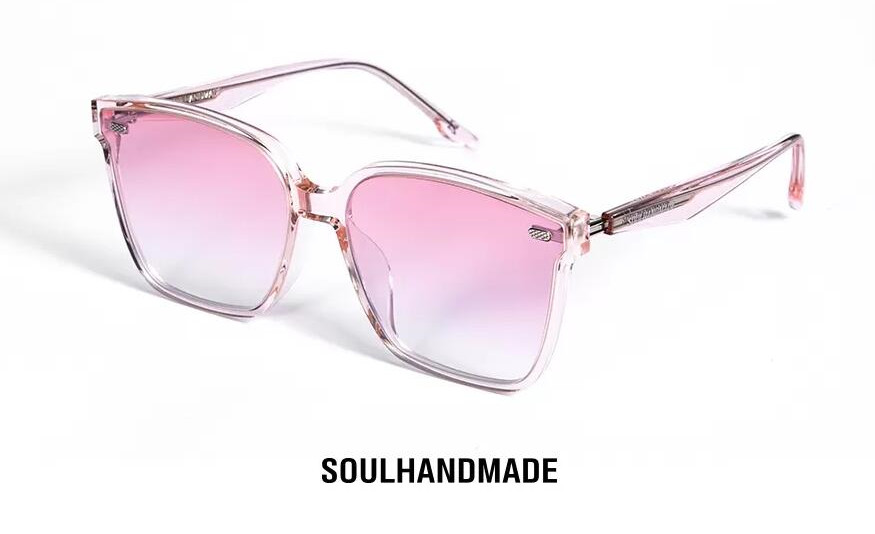What Is Difference Between Polarized and Nonpolarized Sunglasses?
When it comes to shielding our eyes from the sun's harmful rays and enhancing visual clarity, sunglasses are our trusted companions. However, not all sunglasses are created equal. Some come with polarized lenses, while others have non-polarized lenses. The difference between the two lies in their unique abilities to mitigate glare and enhance the overall visual experience.
Unraveling the Mystery: What Are Polarized Sunglasses?
Polarized sunglasses are specialized eyewear designed to reduce glare caused by the sun's reflection on flat surfaces such as water, roads, or snow. This glare can often be visually uncomfortable and potentially hazardous, especially when driving, skiing, or engaging in various outdoor activities. Polarized lenses feature a unique chemical filter that absorbs horizontal light waves while still allowing vertical waves to pass through. This filtering process effectively eliminates the dazzling glare, offering you a clearer and more comfortable view of your surroundings.

The Benefits of Polarized Sunglasses
◎Superior Glare Protection: Polarized sunglasses provide unparalleled protection against intense glare, making them ideal for activities near water bodies or on bright, sunny days.
◎Enhanced Visual Clarity: By reducing glare, polarized lenses improve visual clarity, enabling you to see more vivid colors and better-defined images.
◎Reduced Eye Strain: Struggling to see in bright conditions can lead to eye fatigue and strain. Polarized sunglasses ease this strain, providing a more relaxed viewing experience.
◎Safer Driving Experience: Glare from the road and other vehicles can be dangerous while driving. Polarized sunglasses enhance road visibility, reducing the risk of accidents.
◎Versatile Outdoor Use: Whether you're fishing, golfing, cycling, or simply taking a leisurely stroll, polarized sunglasses are perfect for any outdoor activity, enhancing your enjoyment and safety.
The Advantages of Non-Polarized Sunglasses
While polarized sunglasses offer numerous benefits, non-polarized sunglasses also have their place, catering to specific needs and preferences.
◎Full UV Protection: Non-polarized sunglasses still provide excellent UV protection, safeguarding your eyes from harmful ultraviolet rays.
◎No Interference with Digital Screens: Some polarized lenses may interfere with viewing digital screens like smartphones or GPS devices. Non-polarized sunglasses avoid this issue.
◎Lower Cost Options: Non-polarized sunglasses are generally more affordable, making them accessible to a wider range of budget-conscious consumers.
Fashion Accessories
What are sticky bras used for?
Seasonal Eye Care: Why Sunglasses Are Essential Year-Round
The 11 best sticky bras of 2023
◎Fashion Forward: Non-polarized sunglasses come in a vast array of stylish designs and colors, allowing you to express your fashion sense without compromising eye protection.
◎Photographers' Choice: For photographers, non-polarized lenses may be preferred, as they do not interfere with polarized camera filters.
Choosing the Right Sunglasses: Factors to Consider
When selecting the ideal pair of sunglasses, it's crucial to consider your lifestyle, intended activities, and personal preferences. Here are some essential factors to help guide your decision:
◎Intended Use: If you frequently engage in water sports or spend time near reflective surfaces, polarized sunglasses are an excellent choice. For general daily use or fashion purposes, non-polarized sunglasses may be more suitable.
◎UV Protection: Ensure that your chosen sunglasses offer 100% UV protection, regardless of whether they are polarized or non-polarized. Protecting your eyes from harmful UV rays should always be a priority.
◎Lens Material: Opt for high-quality lens materials that are scratch-resistant and durable. Common options include polycarbonate, CR-39, and glass lenses.
◎Fit and Comfort: Sunglasses that fit well and feel comfortable on your face will encourage you to wear them more often and for more extended periods.
◎Brand Reputation: Research reputable brands known for their eyewear quality and craftsmanship. A reliable brand ensures a better overall product experience. Example: Gentle Monster - our partner.
Conclusion
In conclusion, both polarized and non-polarized sunglasses have their distinct advantages and are suited to different situations. Polarized sunglasses excel at reducing glare and providing enhanced visual clarity, making them perfect for outdoor activities near reflective surfaces. On the other hand, non-polarized sunglasses offer excellent UV protection and come in a wide variety of fashionable designs.
Ultimately, the choice between polarized and non-polarized sunglasses boils down to your lifestyle, activities, and personal preferences. Whether you opt for the glare-fighting prowess of polarized lenses or the fashion-forward versatility of non-polarized ones, the key is to prioritize your eye protection and revel in the joy of the great outdoors with clear, comfortable vision.
- Previous: What are sticky bras used for?
- Next: None



